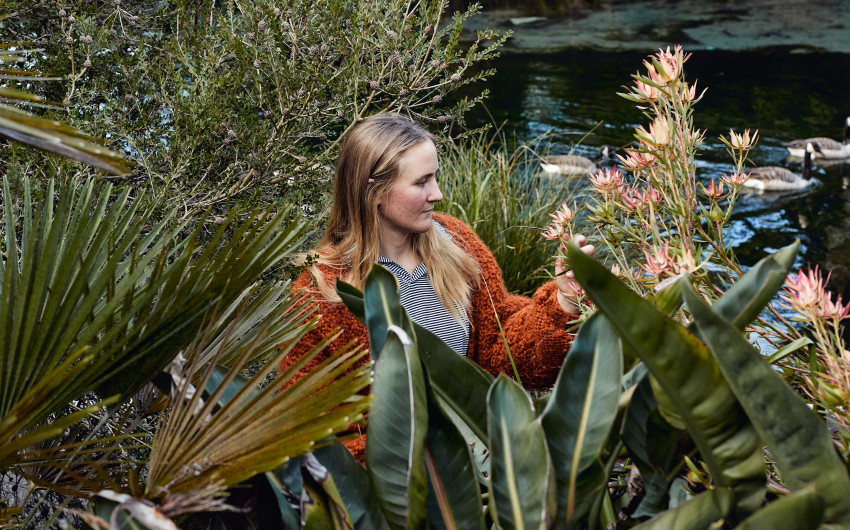Originally Published in 2024
Marayke Bouma was about 14 when she realised her interest in environmentalism ran deeper than her classmates’. She was on a week-long youth leadership forum when something clicked. “It was a turning point, I guess,” Marayke says. “Before then, I hadn’t realised I cared more about the planet than most of my peers.” (Thankfully, she notes a distinct change among young people now.)
Chasing her interest into an environmental science and applied conservation degree at Auckland University of Technology, Marayke followed her study by launching a floristry business. “I took those principles that I learnt into that work, making choices that aligned with my vision,” she explains. Complementing her floristry with a certificate in horticulture and a postgraduate course in leading change for good, Marayke presented a business case study for backyard vegetable gardens.
Last year, her environmentalism took a new direction when she took time off to build a tiny home. After furthering her love for working with her hands by learning to build, Marayke had no interest in sitting behind a desk, so she accepted a gardening role at a retirement village. “It’s really satisfying work,” she says. “The residents are still so attached to the gardens and have their own ideas, but they can’t physically do it, so it’s nice to help. Plus, there’s always a chocolate biscuit on offer.”
Five reasons to start a vegetable garden: 1.Soil is an amazing and largely untapped carbon sink. It even surpasses a forest’s capacity to sequester carbon dioxide from the atmosphere.
2.They help reduce food miles.
3.They increase biodiversity in cities.
4.They make our cities more resilient by reducing the impact of supply-chain disruptions.
5.We can pick what we need, limiting food waste.
Five ways gardening helps our health: 1.A vegetable garden gives us access to fresh, healthy, seasonal produce.
2.Spending time in nature has many proven health benefits. Studies show it can reduce anxiety and stress while increasing creativity and improving focus.
3.It can increase inter-generational community connections, whether that’s through swapping produce with our neighbours, asking a grandparent for gardening advice or pulling weeds with Mum and Dad.
4.The observational nature of gardening means we are connected to the present moment, like a practical meditation.
5.An afternoon spent weeding is a great way to get fresh air and exercise.
Mix-up fix-up In great news for home gardeners, the tedious annual tradition of turning over the garden soil can be left in the past. “You don’t need to worry about it,” says Marayke. “Instead, throw some compost on top, and you’ll retain the natural structure of the soil. Then, when the compost breaks down, the worms will mix it all for you.”
Quick ideas to implement:
1.Connect with your local community garden.
2.Learn to forage five edible weeds.
3.Try meatless Mondays for a month.
4.Switch your KiwiSaver provider to an ethical investor.
